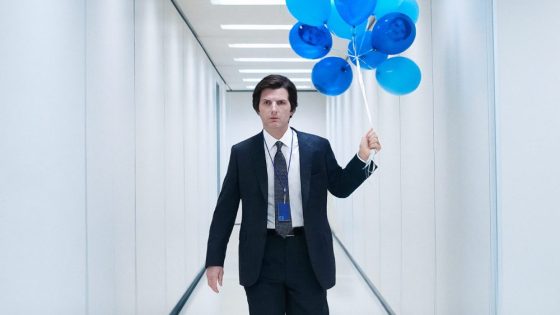This is an excerpt from The Buzzer, which is CBC Sports’ daily email newsletter. Stay up to speed on what’s happening in sports by subscribing here.
As presidential elections go, it doesn’t exactly have the juice of Harris vs. Trump. But seven candidates have officially entered the race to succeed Thomas Bach as head of the International Olympic Committee next year when the German executive reaches the maximum 12 years in office.
Two Olympic gold medallists, the son of a former IOC president and the prince of a Middle East kingdom are among those running for the job, which comes with an eight-year term and the chance to renew for four more years after that.
The successful candidate will shepherd the Olympic “movement” through the 2026 and 2030 Winter Games (in northern Italy and the French Alps, respectively) and the 2028 and 2032 Summer Games (Los Angeles and Brisbane, Australia). The 2034 Winter Olympics have already been awarded to Salt Lake City, but the next IOC president will oversee the selection process for the 2036 Summer Games, which India and Qatar have expressed interest in hosting.
Another big task will be renewing the IOC’s vital U.S. broadcast rights contract, which expires in 2032. That deal accounts for about half of all the money the IOC earns from broadcast rights worldwide and is the organization’s largest single source of revenue. The current 12-year agreement with NBC is worth a total of $7.65 billion US.
The presidential vote will take place by secret ballot during an IOC meeting this March in Greece, near the site of the ancient Olympic Games. There are 111 active IOC members, but probably less than 100 will be allowed to vote because candidates and other members from their country are not eligible.
In order to run for president, you must be an IOC member. This exclusive group of high-status people includes current and former Olympic athletes, leaders of global sports governing bodies, politicians, diplomats, royals and billionaires. The lone Canadian is Tricia Smith, a 1984 Olympic medallist in rowing who has been the president of the Canadian Olympic Committee since 2015. Dick Pound, the former head of the COC and the World Anti-Doping Agency, is one of the IOC’s 37 honourary members, who do not get to vote.
Here’s a look at the contenders for president:
Sebastian Coe (Great Britain)
The two-time Olympic 1,500m gold medallist seemingly checks all the boxes. Following his decorated athletic career, Coe served as an elected Member of Parliament in the U.K. before leading the organizing committee for the 2012 Summer Games in London. He’s now approaching a decade as president of World Athletics, the global governing body for track and field.
But Coe has ruffled feathers in that role, most recently by having World Athletics pay $50,000 US to every track and field gold medallist in Paris. The IOC and other world governing bodies do not award cash prizes at the Olympics and worry this could set a costly precedent.
Coe also has a problem that U.S. election followers will be familiar with — his age. He’ll be 68 on election day, and the age limit for active IOC members is 70. A one-time extension of four years may be granted, but that would cap Coe’s presidential term at six years unless the rules are changed.
Kirsty Coventry (Zimbabwe)
Like Coe, the 41-year-old Coventry is a two-time Olympic champion. She won back-to-back golds in the 200m backstroke and racked up a total of seven swimming medals (all solo) at the 2004 and ’08 Games.
Now the minister of sport in Zimbabwe, Coventry is the only woman in this election and just the second ever to run for IOC president (American Anita DeFrantz was eliminated in the first round in 2001). All nine presidents in the 130-year history of the IOC have been men, and Coventry would also be the first from Africa. Eight hailed from Europe, and one (Avery Brundage) from the United States.
Juan Antonio Samaranch Jr. (Spain)
Yes, he’s the son of the guy who ran the IOC from 1980-2001, a time of explosive commercial growth for the Olympics. The elder Samaranch, who died in 2010, is credited with bringing in bigger broadcast and sponsorship deals and welcoming professional athletes to the Games — including Michael Jordan’s Dream Team in 1992. Samaranch was also criticized for presiding over an era of lavish spending and rampant bribery, though an inquiry cleared him of wrongdoing.
Samaranch Jr. is an investment banker who joined the IOC in 2001 when his dad stepped down, making him the longest-serving member among the presidential candidates. He’s now one of the IOC’s four vice-presidents. Samaranch turns 65 in November, so he would also need an age-limit extension to complete a full eight-year term.
David Lappartient (France)
The 51-year-old president of cycling’s world governing body has been an IOC member for just 2½ years. But, as the head of France’s national Olympic committee, he’s riding high right now from the success of the Paris Summer Games and the selection of the French Alps to host the 2030 Winter Olympics.
The rest
Johan Eliasch has served for an even shorter time than Lappartient: the president of the International Ski and Snowboard Federation (known as FIS) was elected to the IOC less than two months ago. The 62-year-old Swedish/British dual citizen runs the Head sporting goods company, which you might recognize from tennis racquets.
Japan’s Morinari Watanabe, 65, is the president of gymnastics’ global governing body (FIG) and an IOC member since 2018.
Prince Feisal al Hussein of Jordan, 60, is a 14-year IOC member and one of eight with either “Prince” or “Princess” in their name. There are also two reigning kings: Denmark’s Frederick X and the Netherlands’ Willem-Alexander.
Source Agencies


